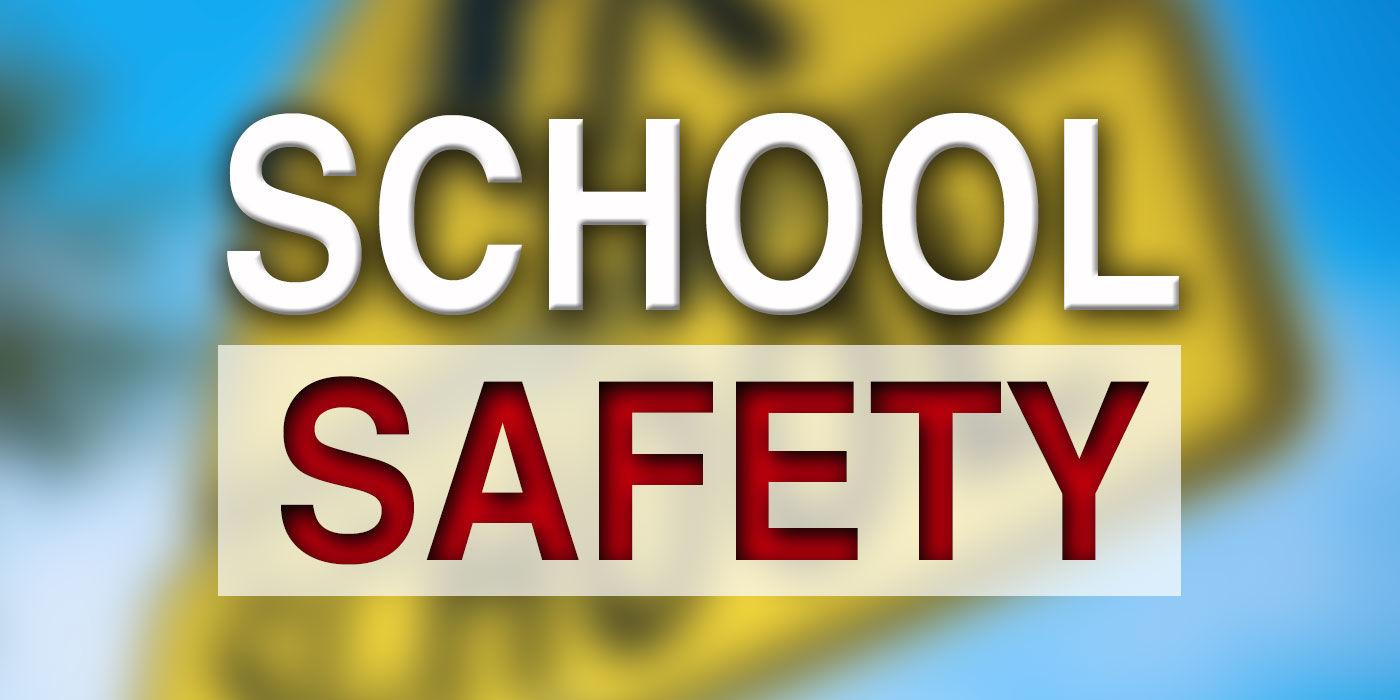Sending the kids off to school is a frightening experience, whether it is the first time walking through those big double doors as a kindergartner, the first day of high school or somewhere in between. So many worries fill the minds of a parent as they send their young ones off to school. These worries oftentimes extend far beyond the normal getting good grades and preparing for a good college worries.
As a parent with a school-aged child, the worries filling your mind are numerous. We worry that our children will become the victim of a bully, or that they won’t be treated well by their teachers. Recent events place more burdens on the shoulders of a parent, as the worry of school violence increases.
Your Child at School
It’s hard being a kid and don’t let anyone tell you differently. Each year of a child’s growth puts them more in tune with the world and with other people and provides them with a sense of who they really are, all while the worry of living up to the expectations of their parents, friends, and others; peer pressure; school worries; and more mound up in their still-growing, ever changing minds.
One of the biggest worries that a child has is being liked and accepted by others. Children at school can be very mean sometimes and it seems not to decrease with the grade level. Teasing, cliques, name-calling, and other ways of poking fun at children seem to be a hard part of growing up that every child experiences at least minimally. It’s never easy to deal with.
Help your child understand that teasing and poking fun is never okay. If it is hurtful –it is NOT okay! Helping your child understand how to respond to in such a situation is especially helpful and may help avoid some of the traumas that can be left from these words that are so hurtful.
A few of the things that you can suggest to your child:
-
- Your child should know that the most important thing to do when they feel that they are being picked on is to inform a trusted adult (teacher, principle, etc.) as soon as possible
-
- Teach your child how to calmly walk away from the situation
-
- Teach your child how to be confident in telling the person making fun of him/her to stop
-
- Help your child understand how not to respond to the teasing because it can make the person teasing only want to taunt them more
-
- Teach your child how to respond with their own joke or funny phrase which may defuse the situation or cause the child that is teasing to back down because they see that it is not going to bother your child

By providing your child with a well-rounded home life that encourages positivity and builds self esteem from early on is one of the ways that your child can cope with the sometimes difficult and mean children they’ll go to school with.
By teaching your child how to be a friend to others with self-esteem building techniques at home, the negativity of other students should be much easier to deal with.
Should your child experience the teasing, name calling and other ill-mannered behaviors of their fellow students be there with an open ear to listen to your child and support them. Those positive talks and encouragements from mom and dad may seem to go in one ear and out the other, but they do sink in and your child will be thankful for your uplifting care and concern. Your support means more than anything to your child, especially at such a difficult time in their life.
Here are a few additional tips to help your child deal with difficult children at school:
-
- Teach your child that it is okay to be who they are and that changing themselves is never something they should desire to do.
-
- It is okay to have certain groups of people that you like more than others. Perhaps you share more common interests with that particular group. This is acceptable, but what isn’t acceptable is being mean or cruel to another person because they’re not included in your specific personality group or genre. Your child should understand the differences.
Your child should also understand that the actions of other children have nothing to do with them but instead a part of growing up that some children handle differently than others.
A few additional tips that can help keep your kids safe against other children:
Dealing with Bullies
Bullies seem to be found in every city and state and in most all schools. It seems that combating bullies is a difficult task for schools nationwide and while they’re doing everything possible to keep each and every student thriving in an educational environment, it is up to parents to help protect their children against bullies and bullying.
Bullies are probably one of the biggest fears that a parent has when they send their children off to school. Bullying these days has certainly taken on a whole new level compared to long ago when it was nothing more than a few (seemingly) harmless names. These days, however, bullying is far more damaging, sometimes causing extreme emotional damage to the child that can last them for many years ahead.
Here are a few tips that you can practice with your child to ensure that a bully doesn’t cause problems during their school year, or that should they find themselves the victim of the teasing and taunting, they’re well-aware of the right ways to address the issue.
-
- It is important that your child knows that they can talk to you about problems they’re facing at school, including issues with bullies. Reinforce the fact to your child that the bullying is not their fault.
-
- Do not hesitate to talk to the school principle concerning the issues with bullying that your child is experiencing. Perhaps it is not an issue they are aware of and until they have this information, little changes will take place.
-
- Help your child learn how to avoid the bully whenever possible.
- Help your child learn assertiveness. While fighting back is not encouraged, it is important that your child stand up for himself when being bullied. Oftentimes bullies choose children they perceive as weaker to bully. When your child shows that he isn’t weak, the bully is likely to continue their efforts. Watch for signs that your child is being bullied. Sometimes your child may be embarrassed and not want to talk about the problem. It is your job to intervene before the problem becomes more serious.
Discover more from Personal Blog of Richard Tong
Subscribe to get the latest posts sent to your email.





I loved your post.Really looking forward to read more. Awesome.
I am no longer sure the place you are getting your information, but good topic. I needs to spend a while finding out more or understanding more. Thanks for wonderful information I was on the lookout for this info for my mission.
I like reading an article that will make men and women think. Also, thanks for allowing me to comment!
There is certainly a lot to learn about this subject. I love all of the points you have made.
This is a great tip particularly to those fresh to the blogosphere. Simple but very precise infoÖ Thank you for sharing this one. A must read article!
Your style is so unique in comparison to other folksI have read stuff from. Many thanks for postingwhen you’ve got the opportunity, Guess I’ll just book mark this blog.
Im thankful for the article post.Really looking forward to read more. Fantastic.Loading…
Enjoyed every bit of your blog post.Really thank you! Will read on…
A big thank you for your blog post.Really thank you! Great.
Really enjoyed this article post.Really thank you! Keep writing.
I cannot thank you enough for the article post.Thanks Again. Awesome.
I appreciate you sharing this blog article.Much thanks again. Keep writing.
Looking forward to reading more. Great article post.Thanks Again. Great.
Thanks again for the blog post.Thanks Again. Much obliged.